I've been working on a web app using Django, and I'm curious if there is a way to schedule a job to run periodically.
Basically I just want to run through the database and make some calculations/updates on an automatic, regular basis, but I can't seem to find any documentation on doing this.
Does anyone know how to set this up?
To clarify: I know I can set up a cron job to do this, but I'm curious if there is some feature in Django that provides this functionality. I'd like people to be able to deploy this app themselves without having to do much config (preferably zero).
I've considered triggering these actions "retroactively" by simply checking if a job should have been run since the last time a request was sent to the site, but I'm hoping for something a bit cleaner.
